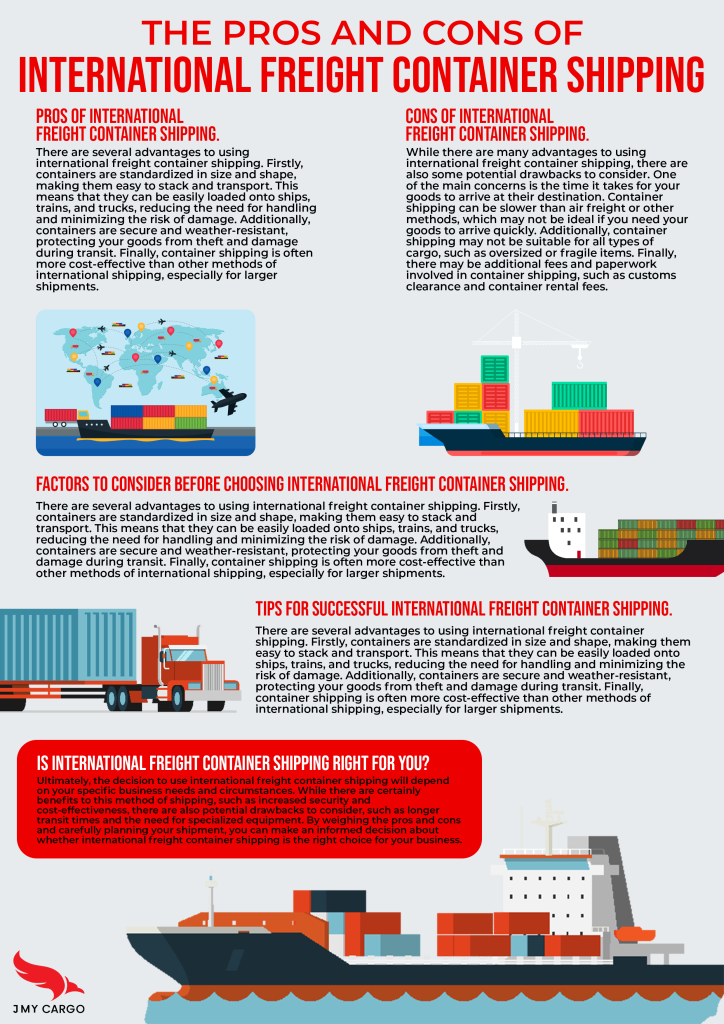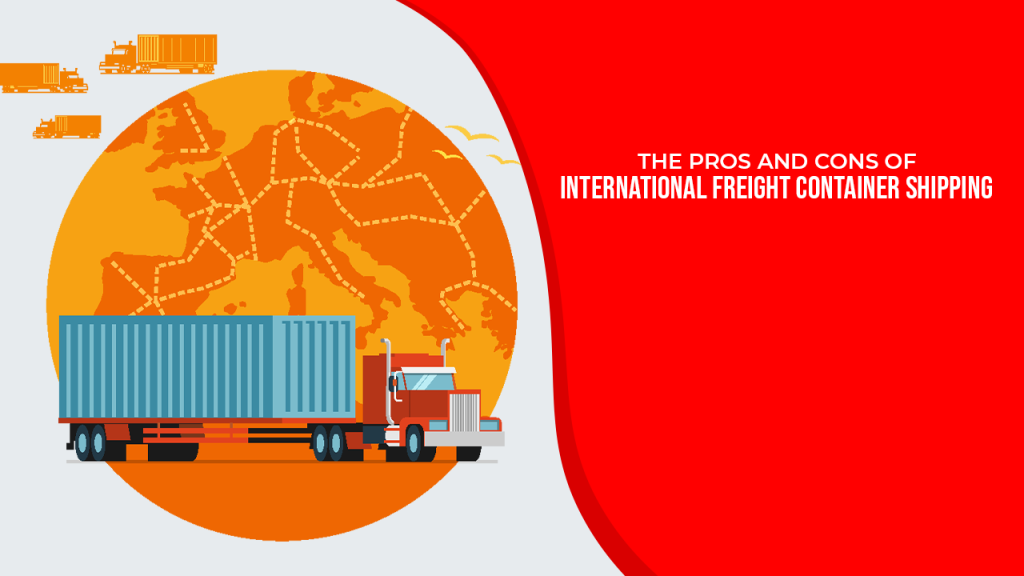If you’re looking to ship goods overseas, international freight container shipping may be a viable option. However, it’s important to weigh the pros and cons before making a decision. In this article, we’ll explore the benefits and potential drawbacks of using freight containers for international shipping.
Pros of International Freight Container Shipping.
There are several advantages to using international freight container shipping. Firstly, containers are standardized in size and shape, making them easy to stack and transport. This means that they can be easily loaded onto ships, trains, and trucks, reducing the need for handling and minimizing the risk of damage. Additionally, containers are secure and weather-resistant, protecting your goods from theft and damage during transit. Finally, container shipping is often more cost-effective than other methods of international shipping, especially for larger shipments.
Cons of International Freight Container Shipping.
While there are many advantages to using international freight container shipping, there are also some potential drawbacks to consider. One of the main concerns is the time it takes for your goods to arrive at their destination. Container shipping can be slower than air freight or other methods, which may not be ideal if you need your goods to arrive quickly. Additionally, container shipping may not be suitable for all types of cargo, such as oversized or fragile items. Finally, there may be additional fees and paperwork involved in container shipping, such as customs clearance and container rental fees.
Factors to Consider Before Choosing International Freight Container Shipping.
Before deciding to use international freight container shipping, it’s important to consider several factors. First, think about the type of goods you are shipping and whether they are suitable for container shipping. If you are shipping oversized or fragile items, container shipping may not be the best option. Additionally, consider the time frame for delivery and whether container shipping’s slower transit time will work for your needs. Finally, factor in any additional fees and paperwork involved in container shipping, such as customs clearance and container rental fees. By weighing these factors, you can make an informed decision about whether international freight container shipping is the right choice for your business.
Tips for Successful International Freight Container Shipping.
If you have decided that international freight container shipping is the right choice for your business, there are several tips to ensure a successful shipment. First, properly pack and secure your goods to prevent damage during transit. Label your containers clearly and accurately to avoid any confusion or delays. Additionally, work with a reputable freight forwarder who can handle all the necessary paperwork and customs clearance. Finally, plan ahead and allow for extra time in case of any unexpected delays or issues. By following these tips, you can ensure a smooth and successful international freight container shipment.

Conclusion: Is International Freight Container Shipping Right for You?
Ultimately, the decision to use international freight container shipping will depend on your specific business needs and circumstances. While there are certainly benefits to this method of shipping, such as increased security and cost-effectiveness, there are also potential drawbacks to consider, such as longer transit times and the need for specialized equipment. By weighing the pros and cons and carefully planning your shipment, you can make an informed decision about whether international freight container shipping is the right choice for your business.

